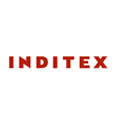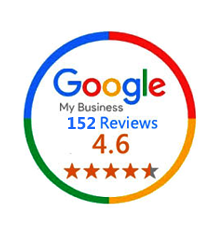Benefits of CSCP Certification
Certified Supply Chain Professional training is ideal for Supply Chain, Materials Management, Purchasing Executives and Managers as well as agents and buyers from service and manufacturing companies, Distributorships, Oil/Gas, Government, Construction, Nonprofit, Healthcare, and Educational Organizations, Consultants, Operational auditors, Sales, and Marketing personnel; and other personnel who deal with customers or suppliers, will also benefit from this program
| Position | Avg Salary |
|
Supply Chain Manager
|
$83,966 |
|
Supply Chain Analyst
|
$60,701 |
|
Supply Chain planner
|
$64,957 |
|
Logistics supervisor
|
$57,966 |
|
Supplier Quality Engineer
|
$75,063 |
|
Logistics Director
|
$100,709 |
| Source: www.payscale.com |








Register for our Upcoming Webinar
We regularly conduct introductory Webinar sessions for CSCP course
Fill this form to get an invite to our next expert webinar session.
Why CSCP Certification?
The Certified Supply Chain Professional (CSCP) Certification is a gold standard credential for logistics & supply chain professionals and is designed to help individuals to develop and maintain the best practices and standards in the supply chain. The CSCP Certification is a highly valued certification by employers in the supply chain management sector.
The CSCP-certified professionals earn 25% more than their non-certified counterparts. While more experienced professionals with CSCP certification can earn up to a 40% increase in their median salary.
Obtaining CSCP certification is extremely important for job advancement in the logistics & supply chain management sector. Employers or recruiters in the logistics and supply chain field will prefer the CSCP qualification over all other credentials.
By getting CSCP certification, you will be among only 21,000 professionals worldwide and it is the gold standard in supply chain education. Earning CSCP certification can lead to huge career advancement and improved salary.
CSCP Certification Course
CSCP Course Contents:
- Introduction to Supply Chains
- Demand Analysis and Patterns
- Demand Management
- Forecasting
- Supply and Demand Alignment
- Sales & Operations Planning (S&OP)
Module 2: Global Supply Chain Networks
- Supply Chain Design and Optimization
- End-to-End Connectivity and Visibility
- Supply Chain Metrics and Reports
Module 3: Sourcing Products and Services
- Aligning Sourcing and Demand
- Category Strategy for Sourcing
- Product Design Influence
- Supplier Selection, Contracting, and Use
- Planning Operations
- Capacity and Production Activity Control
- Inventory
- Performance and Continuous Improvement
Module 5: Forward and Reverse Logistics
- Logistics and Distribution
- Warehousing and Materials Handling Strategy
- Trade Considerations
Reverse Flow
Module 6: Supply Chain Relationships
- Customer Relationships
- Supplier and Supply Chain Relationships
Module 7: Supply Chain Risk
- Risk Management and Supply Chain Risks
- Risk Analysis and Response
Module 8: Optimization, Sustainability, and Technology
- Optimizing Supply Chain Strategy and Tactics
- Sustainability
- Technology Trends
Who should become Supply Chain Certified?
Accelerative Minds
Organization Leaders
Innovators
People with Dreams
Job positions after CSCP Certification
- Project Manager
- Global Logistics Manager
- Supply Chain Sales Manager
- Supply Chain Manager
- Procurement Analyst / Purchasing Manager
- Warehousing Manager
- Supply Chain Director
- Supply Chain Consultants
Why Delphi?
Certified & Professional Trainers
Our faculties are qualified & industry experts with significant experience in their domain.
Live Instructor Led Training
We conduct live classes through GoToMeeting, Zoom and other live meeting software.
Cloud e-learning portal
Get live class notifications, view class recordings, or practice questions all in one access.
Flexible Batch Timings
All our batch schedules are designed to support work while you study principle.
Placement Assistance
We guide you to benefit from the newly acquired global professional certification.
Reputed Study Materials
We provide internationally reputed study materials with our customized success slides.
Exam Pass Guarantee
We guarantee you’ll pass your exam on the first attempt. Learn more.
How to get Certified in Supply Chain Management
CHECK YOUR ELIGIBILITY TO SIT FOR THE EXAM
ENROLL FOR THE PROGRAM
APPLY FOR THE EXAMINATION
APPEAR FOR THE EXAMINATION
GET CERTIFIED
Supply Chain Management Course Trainer

Kashif Akhtar
Mr. Kashif Akhtar is an experienced Engineer and Supply Chain Professional with vast experience in Supply Chain, Contracts Management, and Supply Chain various ERP tools.Read More

Anirban Mondal
Anirban is an MBA in Logistics & Supply Chain | BCA | Certified in Operations & Production Management | Certified Object Oriented Programmer using C+ | Helping businesses streamline their operations and maximize efficiency. With 10+ years of experience in operations, logistics, project management, and supply chain analysis. Read More
Supply Chain Management Course Highlights
Self Paced
ELearning at your own pace
- 32+ Hours Of Recorded Videos
- Study Material & Exam Kits
- Access To Delphi ELearning Portal
- Exam Success Slides Access
- Practice Questions
- 24*7 Support
Live Online
Live Instructor Led Online Classes
- 32+ Hours Of Live Online Training
- Study Material & Exams Kits
- Access To Delphi ELearning Portal
- Exam Success Slides Access
- Practice Questions
- 24*7 Support
- Mock Tests
- Free Career Guidance
- Revision Class before Exam
In-house Live
Corporate or One to One Training
- 32+ Hours of Personalised Training
- Study Material & Exams Kits
- Access To Delphi ELearning Portal
- Exam Success Slides Access
- Practice Questions
- 24*7 Support
- Mock Test
- Free Career Guidance
- Revision Class before Exam
FAQS – SUPPLY CHAIN CERTIFICATIONS
Frequently asked questions for Certified Supply Chain Professional Course
Supply chain management encompasses the planning and management of all activities involved in sourcing and procurement, conversion, and all logistics management activities. Importantly, it also includes coordination and collaboration with channel partners, which can be suppliers, intermediaries, third-party service providers, and customers. In essence, supply chain management integrates supply and demand management within and across companies.
Supply chain management is an integrating function with primary responsibility for linking major business functions and business processes within and across companies into a cohesive and high-performing business model. It includes all of the logistics management activities noted above, as well as manufacturing operations, and it drives coordination of processes and activities with and across marketing, sales, product design, finance, and information technology.
Source: Council of Supply Chain Management Professionals
The supply chain — a term now commonly used internationally — encompasses every effort involved in producing and delivering a final product or service, from the supplier’s supplier to the customer’s customer. Supply chain management includes managing supply and demand, sourcing raw materials and parts, manufacturing and assembly, warehousing and inventory tracking, order entry and order management, distribution across all channels, and delivery to the customer.
Two main reasons: money and opportunity. Advances in information technology (IT) and the expanding IT infrastructure are introducing new possibilities to improve service and efficiencies, and given the amount of money at stake, the opportunities are high. Some people view the IT tools that underlie supply chain management as the backbone of e-commerce.
In years past, manufacturers were the drivers of the supply chain — managing the pace at which products were manufactured and distributed. Today, customers are calling the shots, and manufacturers are scrambling to meet customer demands for options/styles/features, quick order fulfillment, and fast delivery.
Companies that learn how to improve the management of their supply chain will become the new success stories in the global marketplace. Benchmarking studies show significant cost differences between organizations that exhibit best-in-class performance and those with average performance
SCM majors are prepared for entry-level positions in purchasing or logistics such as a buyer, purchasing analyst, inventory control, or traffic analyst with a career track to the vice president of procurement, operations, or logistics. Firms from around the country and in all sectors of the economy, public and private, manufacturing, service, health care, retail, etc. recruit SCM graduates.
Listed below are brief descriptions of a few of the typical entry-level positions:
Planner or Analyst – Uses analytical and quantitative methods to understand, predict, and enhance supply chain processes. Responsible for assembling data, analyzing performance, identifying problems, and developing recommendations that support the management of a supply chain.
Buyer – Works with internal customers (marketing, production, operations, etc.) and external suppliers to efficiently and effectively manage the purchasing process for the goods and services needed by the company. Responsible for identifying sources of supply, evaluating and selecting suppliers, negotiating contracts, and managing relationships with suppliers.
Inventory Specialist – Develops and implements plans to optimize inventory cost and customer service goals. Responsible for inventory quality and accuracy, coordinated physical inventory process and cycle counts, monitor inventory flow through the system, and works on stock location and order picking strategies to optimize workflow, space utilization, and labor productivity in distribution facilities.
Materials Planner, Materials Analyst – Manages raw materials and/or components needed for manufacturing. Responsible for inbound inventory levels. Coordinates with purchasing, manufacturing, and supplier to ensure reliable, cost-efficient delivery of the raw materials to the production line. May be responsible for receiving, warehousing, scheduling, and inbound transportation.
Transportation Coordinator, Traffic Analyst – Evaluates, selects, and manages transportation carriers for inbound goods. Manages relationships with carriers and internal customers to ensure the timely delivery of goods.
Production Coordinator, Scheduler, Operations Planner/ Analyst – Uses scheduling and forecasting abilities, knowledge of statistical process control, and interpersonal skills. Responsible for coordinating daily production schedules and forecasting future production needs.
Supply Chain Related Business Experience
- Raw materials extraction
- Transportation and logistics
- Procurement
- Manufacturing
- Warehousing
- Distribution
- Retail
- Customer service
- Software design and support
- Management
- Sales
- Quality control
We at Delphi have our own proven methodology – we do not follow competitors and other service providers as we believe in delivering education and making careers which are associated with value addition.
Our Vision is providing theoretical and practical knowledge. Delphi aims to provide hands on exposure on ERP systems so that the trained professional from Delphi can start working with a minimum learning curve. He will be familiar with Supply Chain Systems and will add value to the organizations the successful and certified professionals will be joining.
Self Paced Video Course Study on your Own?
Don’t have time to attend the live classes, no worries. Get the Internationally reputed Self Study kit and access to our e-learning portal at the best price and prepare for your Supply Chain Professional Certification in your own style.
Get Access to
-
Internationally Reputed Study Materials & Exam Kit
100+ Hours of Recorded Videos
3,000+ Practice Questions & Mock Tests
24*7 Access to EduDelphi e-learning portal
Expert Doubt Clearing Sessions














